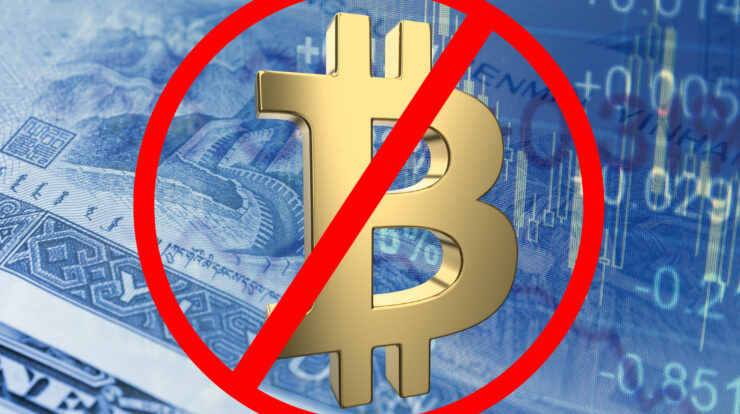
Bitcoin is a decentralized currency without ties to any government or institution. Find out why governments cannot stop Bitcoin.
Governments worldwide have increasingly criticized Bitcoin as a disruptive currency that undermines their capital controls. Some have even banned their banks and financial institutions from dealing in crypto because it is an unregulated market. Bitcoin continues to face increased government scrutiny, impacting significant regulatory pressures.
Meanwhile, Bitcoin’s global adoption and usage have grown by huge margins over the last few years. Experts believe the trend will continue as many international institutions, businesses and individuals embrace Bitcoin as a more reliable means of payment and investment than traditional assets and fiat money.
Perhaps, the governments’ inability to stop Bitcoin is the main reason behind its increased adoption. So, why can’t governments stop Bitcoin?
A Decentralized Financial System
Bitcoin’s decentralization is one of the main concerns that several governments and regulatory agencies have raised about it. Central banks and regulatory agencies have been the sole custodians of financial transactions worldwide. For instance, the United States relies on the Federal Reserve to print and create money for its economy. That institution is also the lender of the last resort, regulating all transactions in the entire US economy.
The traditional systems entrust governments and their imposed agencies to regulate money supply and circulation. They usually stipulate multiple intermediaries such as banks and financial institutions to distribute and control the flow and usage of money in an economy. That gives governments the absolute power to dictate how to transfer money and the sectors to which it should be distributed and trace its usage. They also generate revenues through taxes levied on businesses and individuals.
Bitcoin can dismantle the traditional financial systems imposed by governments because it is decentralized, without ties to any government or financial institution. Unlike fiat currencies distributed and regulated by central banks, no central authority controls Bitcoin’s supply and usage. Instead, the Bitcoin network relies on independent miners to mint new tokens and validate transactions. Bitcoin’s decentralized network also comprises thousands of nodes randomly distributed worldwide.
Bitcoin allows anyone with a full node to join the network. Miners produce new Bitcoin tokens by solving complex mathematical puzzles dictated by the Bitcoin protocol. Besides, Bitcoin mining also occurs at a pre-determined rate, not subject to supply and demand economics. That eliminates intermediaries such as banks and money processors, undermining government control over money supply and usage. Thus, governments have absolutely no way to stop Bitcoin’s adoption and use.
Peer-to-Peer Transactions
Governments usually impose various laws and regulations to monitor transactions within and across their borders. For example, they require banks and other financial institutions to comply with Know Your Customer (KYC) rules. That makes it imperative for businesses and individuals to provide proof of their real identities to transact. Besides, the traditional systems also stipulate intermediaries to oversee all cross-border transactions. That enables governments to maintain a tight grip over financial transactions, sometimes even declining payments.
However, Bitcoin operates on a different concept from the traditional systems. It relies on a peer-to-peer blockchain network, limiting transactions to the two involved parties. Bitcoin money transfers occur on the blockchain, eliminating the need for intermediaries to distribute and manage funds. Crypto exchanges such as thequantumai.app facilitate crypto transactions but, they cannot regulate how and where people spend their Bitcoin. Bitcoin’s peer-to-peer network makes it extremely difficult for governments to monitor transactions and control money flow. What’s more, it enables users to receive and transfer funds worldwide without government interference.
While governments have expressed growing concerns over Bitcoin, no universal consensus exists about its regulation. Nevertheless, Bitcoin’s decentralized network and peer-to-peer transactions are the key reasons governments cannot stop it.

